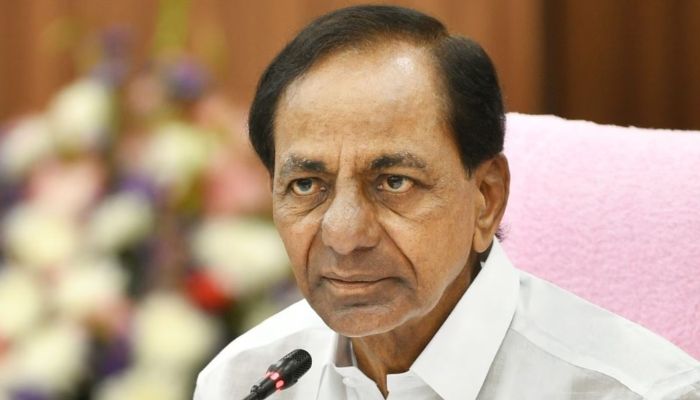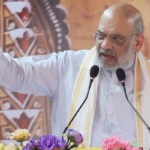The BRS government, which tapped the phones of over 600 influential people, including politicians, journalists and activists, had destroyed 62 hard disks after losing elections by switching off CCTV footage for 1 hour.
On the night of 4th December, 2023, something unusual happened inside Telangana’s Special Intelligence Branch (SIB) office in Hyderabad. For exactly one hour, from 8:34 pm to 9:34 pm, the CCTV cameras at the state’s top intelligence agency were switched off.
According to a report by The Indian Express, the Hyderabad police investigation has determined the exact window when 62 hard disks were destroyed. Investigators say the disks were cut, ground into bits, and dumped into a river. All this happened in a small anteroom of the SIB office.
From fighting Naxals to spying on political rivals
The case is part of a larger investigation into allegations that five senior police and intelligence officers, along with a TV channel operator, carried out illegal surveillance on at least 600 people, all for the benefit of the then ruling Bharat Rashtra Samithi (BRS).
Those targeted included politicians, bureaucrats, businessmen, a sitting High Court judge, and even their families, drivers, and old friends. The surveillance was carried out using systems originally meant to track Maoist activity.
Politicians among those under the scanner
Union Minister of State for Home Affairs and BJP leader Bandi Sanjay Kumar, who is said to be one of the targets, appeared before the Hyderabad police on Friday, 8th August. After his statement, he claimed that as many as 6,500 phones were tapped, including those of Telangana Chief Minister Revanth Reddy and BRS MLAs.
Reports have also suggested that a separate team was dedicated just to monitor Revanth Reddy and his associates.
Who gave the destruction order
Investigators believe the order to destroy the disks came from then SIB chief T Prabhakar Rao. He resigned from his post on 4th December, 2023, just one day after the Congress came to power in the state.
In his Supreme Court plea, however, Rao has claimed that the decision to destroy the data was approved earlier, on 2nd December, by a committee that included the Chief Secretary, the Secretary of the General Administration Department, and the Law Secretary.
What was inside those disks
Police say most of the destroyed disks contained “political intelligence”, personal profiles, phone conversations, and online chats of political leaders. But some disks also had legitimate surveillance data on the CPI (Maoist), which the SIB is supposed to collect.
By wiping these drives, investigators say, decades of valuable intelligence were lost — something that could even put the country’s internal security at risk.
The secret Special Operations Team
Out of the 62 disks, 36 were under the control of a Special Operations Team (SOT) created in 2020 within the SIB. This team focused not on Naxal activities, but on political spying.
The SOT’s lead officer was DSP D. Praneeth Kumar, also known as Praneeth Rao, who was later arrested in connection with the case but is now out on bail. He reportedly had three exclusive rooms in the SIB office, 11 staff members, 17 desktops, two laptops, dedicated phone lines, and a private internet connection.
How they tapped calls and tracked online activity
According to investigators, the SOT’s lead officer was D. Praneeth Kumar alias Praneeth Rao, a DSP of SIB, who was arrested in connection with the case and is now out on bail.
Kumar had three rooms in the SIB office to himself and 11 personnel under him. They had access to 17 desktop computers, two laptops, two phone numbers and a dedicated leased line with internet connection.
According to investigators, the SOT would write to various telecom service providers to allow them to intercept calls. This activity, called legal interception, was signed off by Prabhakar Rao, investigators familiar with the chargesheet said.
As per law, such data must be destroyed every six months. But here, the witness told police, the destruction order came a month early, and there was no reason to turn off the CCTV cameras during the process.
Even technicians were not allowed inside the SOT rooms for repairs; they had to collect machines from outside the door.
Help from a private surveillance company
The SOT also worked with a Hyderabad-based private surveillance operator. This firm provides technical help to law enforcement and defence agencies, including intercepting online chats on platforms like WhatsApp.
Investigators say the company provided three special tools to gather information from platforms like X, Facebook, Instagram, YouTube, and Snapchat, to decrypt captured network data, and to read WhatsApp messages from targeted phones.
Background: How the case began
The illegal surveillance began in 2018–19 but peaked just before the 2023 Telangana Assembly elections. Between 16th November and 30th November, election day, at least 600 people were under watch, according to the SIT.
Those targeted included top Congress and BJP leaders, such as Telangana Pradesh Congress Committee president Mahesh Kumar Goud and Union Minister Bandi Sanjay Kumar.
In March 2024, the case surfaced when an Additional Superintendent of Police from SIB filed an FIR against DSP Praneeth Rao, accusing him of using illegal methods to collect intelligence. The Punjagutta police later named six accused, including former SIB chief T Prabhakar Rao, Praneeth Rao, ASP M Thirupathanna, N Bhujanga Rao, former DCP T Radha Kishan Rao, and TV channel owner N Shravan Kumar.
The Supreme Court has given Prabhakar Rao protection from arrest until August. Others, including Praneeth Rao, Bhujanga Rao, Thirupathanna, and Radha Kishan Rao, were arrested and later released on bail. Shravan Kumar is still in Chanchalguda jail in another case, but also has interim relief in the phone-tapping case.
Officials say the surveillance was done by misusing Section 419(A) of the Indian Telegraph Rules, which allows interception orders only from senior government officials or in emergencies by specially authorised officers. In this case, the rules were bent to justify spying on people with no links to Naxalism, purely for political gain.












